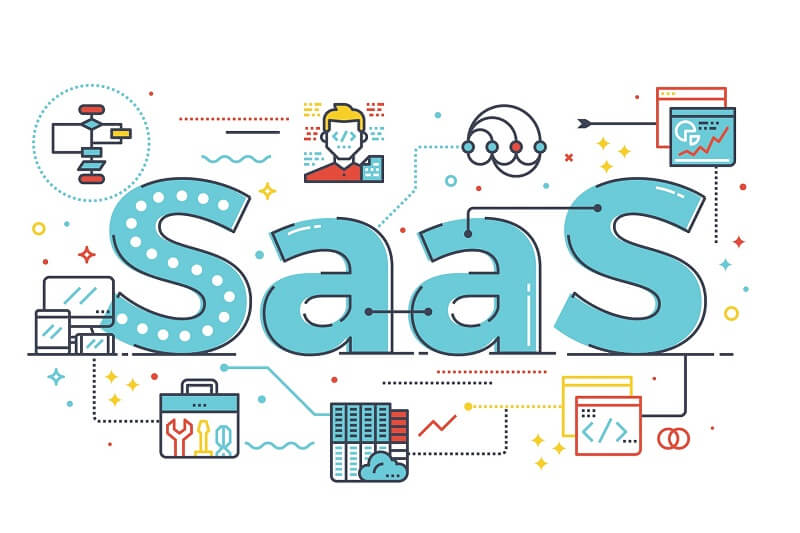Looking for a versatile and affordable way to run your business? Software as a Service (SaaS) might be the solution you need. SaaS has revolutionized the way businesses operate and interact with customers. It allows users to access software and applications via the Internet, making it convenient and cost-effective. With SaaS, businesses can save time and resources, while also enjoying a seamless experience. From managing customer relations to streamlining operations, SaaS has become an indispensable tool for modern businesses.
In this blog post, we’ll explore the advantages of SaaS, its popular use cases, and how it can help you streamline your business operations and save costs.
SaaS Definition | SaaS Meaning
SaaS stands for “Software as a Service.” It is a software delivery model in which software is accessed online through a subscription or pay-per-use basis. In SaaS, the software vendor provides and manages the software infrastructure, maintains security, and handles updates and maintenance, while users access the software over the internet through a web browser or mobile app. This model offers several benefits including lower costs, increased scalability, and easy maintenance.
What Is SaaS (Software as a Service) Company?
SaaS (Software as a Service) companies are revolutionizing the software industry by providing innovative, reliable, and cost-effective software solutions to businesses of all sizes. With a subscription-based model, these companies deliver cloud-based software applications through the Internet, eliminating the need for customers to manage their own hardware.
Gone are the days of high upfront costs associated with traditional software licenses. SaaS companies offer a variety of software solutions, including customer relationship management (CRM), project management, accounting, collaboration, and communication platforms. This allows businesses to access the software they need from anywhere, at any time, as long as they have an internet connection.
By hosting the software on their own servers, Software-as-a-service companies take on the responsibility of maintaining and updating the software, ensuring it’s always up-to-date and running smoothly. This frees up businesses to focus on what they do best.
Successful SaaS companies have large customer bases, strong brand recognition, and a reputation for delivering innovative and reliable software solutions. They have disrupted traditional software delivery models and made it easier for businesses to access the software they need without breaking the bank.
Here’s a summary of why SaaS companies are leading the way in software solutions:
- Subscription-based model
- Cloud-based software applications are accessible from anywhere
- Elimination of high upfront costs
- A variety of software solutions are available
- Responsibility for maintaining and updating the software
- Cost-effective and scalable solutions for businesses of all sizes.
Join the revolution and explore what SaaS companies can offer your business.

Examples of Top SaaS Company
There are many successful SaaS companies operating in a variety of industries. Here are some of the top SaaS companies based on their market share, revenue, and customer base:
Microsoft –
Microsoft is a technology company that offers a suite of cloud-based applications, including Microsoft 365, Dynamics 365, and Azure, to help businesses of all sizes improve their productivity and collaboration.
Salesforce –
Salesforce is a CRM platform used by businesses of all sizes to manage their sales, marketing, and customer service activities. It has a large customer base and is known for its innovative products and services.
Adobe –
Adobe is a software company that offers a range of cloud-based creative applications, including Photoshop, InDesign, and Illustrator, as well as marketing and analytics tools, such as Adobe Experience Cloud.
Oracle –
Oracle is an enterprise software company that provides a range of cloud-based applications, including ERP, CRM, and HCM solutions, to help businesses automate their processes and improve their efficiency.
SAP –
SAP is an enterprise software company that offers a range of cloud-based applications, including ERP, CRM, and supply chain management solutions, to help businesses of all sizes streamline their operations and improve their productivity.
Zoom –
Zoom is a video conferencing and collaboration platform used by businesses for remote meetings, webinars, and virtual events. Application gained popularity during the COVID-19 pandemic due to the rise of remote work and has since become a household name.
Dropbox –
Dropbox is a cloud-based file storage and sharing platform that allows users to access their files from anywhere, on any device. It is popular among businesses and individuals for its ease of use and accessibility.
These are just a few examples of the many successful SaaS companies operating today. These companies have disrupted traditional industries and have revolutionized the way businesses operate. By providing cost-effective, scalable, and accessible solutions to their software needs.
Benefits of Using SaaS Products:
There are several benefits of using SaaS products, including:
Cost-effectiveness:
SaaS eliminates the need to purchase and maintain software and hardware infrastructure. Instead, users pay a subscription fee or pay-per-use model, which is often more cost-effective, especially for small businesses.
Accessibility:
SaaS products are accessible from anywhere with an internet connection, allowing users to work from anywhere and collaborate with others in real-time. This is particularly useful for remote teams, freelancers, and businesses with multiple locations.
Scalability:
SaaS products can be easily scaled up or down as per the needs of the business. Users can easily add or remove users, increase or decrease storage, and upgrade to premium features without any hassle.
Up-to-date software:
SaaS providers are responsible for maintaining and updating the software, ensuring that users always have access to the latest version. This eliminates the need for users to worry about software updates or security patches.
Security:
SaaS providers implement strict security measures to protect user data, often using advanced encryption, multi-factor authentication, and regular security audits.
Easy integration:
SaaS products are often designed to integrate seamlessly with other software tools, such as CRM, project management, or accounting software, making it easier to manage multiple applications and workflows.
Overall, SaaS products provide a flexible, cost-effective, and convenient solution for businesses looking to access the latest software tools without investing in expensive infrastructure.
Pros and Cons of Software as a Service (SaaS)
Pros:
- Cost-effective subscription-based model.
- Accessible from anywhere with an internet connection.
- Automatic software updates and maintenance.
- Scalable solutions for businesses of all sizes.
- Elimination of the need for on-premise hardware.
Cons:
- Dependence on internet connection.
- Lack of control over the software.
- Data security concerns.
- Limited customization options.
- Potential for hidden costs.
Overall, Software as a service offers cost-effective and scalable solutions for businesses, but weighing the pros and cons before making the switch is important. While accessibility and automatic updates are a plus, there are concerns about data security and hidden costs to consider.
FAQs –
What is SaaS?
SaaS stands for Software as a Service. It is a software delivery model where a software application is hosted by a third-party provider and made available to customers over the Internet.
How does SaaS work?
SaaS works by allowing customers to access software applications over the internet. The software is hosted on the provider’s servers and customers can access it through a web browser or mobile app.
What are some popular SaaS products?
Some popular SaaS products include Salesforce, Microsoft Office 365, Google Workspace, Dropbox, and Zoom.
Is data security a concern with SaaS?
Data security is a concern with any software solution, but reputable SaaS providers use advanced security measures such as encryption, firewalls, and regular security audits to ensure the safety of their customers’ data.
How does SaaS help businesses save money?
SaaS helps businesses save money by eliminating the need for high upfront costs associated with traditional software licenses and reducing the need for on-premise hardware and IT staff.
What is the difference between SaaS and PaaS?
SaaS (Software as a Service) and PaaS (Platform as a Service) are both cloud computing models. The main difference between them is that SaaS provides ready-to-use software applications over the Internet, while PaaS provides a platform for developers to create and deploy their own software applications.
How do I choose the right Software as a Service provider for my business?
When choosing a SaaS provider for your business, consider factors such as the provider’s reputation and track record, the features and functionality of their software, their pricing model, and their customer support.

